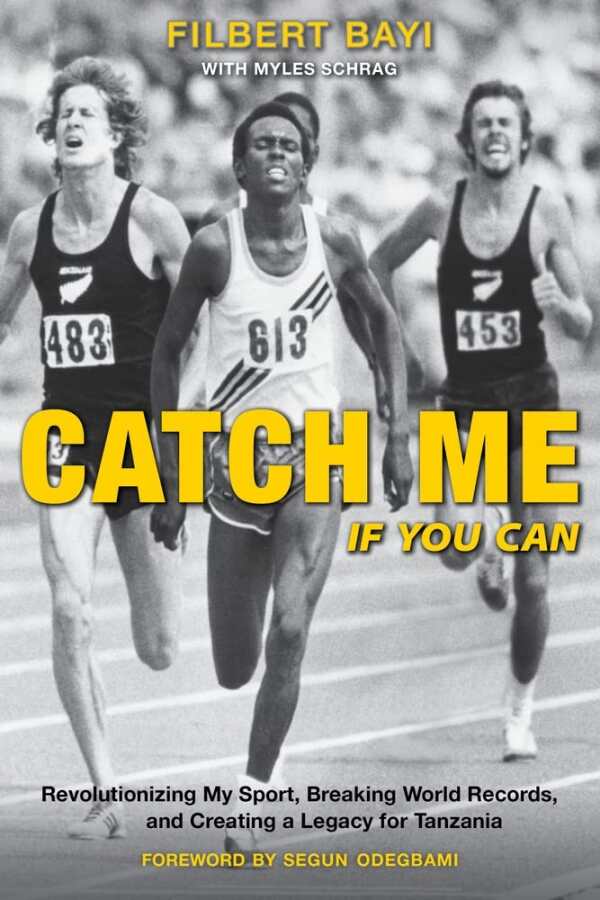Catch Me If You Can
Revolutionizing My Sport, Breaking World Records, and Creating a Legacy for Tanzania
Catch Me If You Can is the gripping sports memoir of a legendary middle distance runner.
Filbert Bayi’s Catch Me If You Can is an inspiring memoir about the power of sports and the field of middle distance running.
Bayi became accustomed to traversing long distances on foot as a child, when he walked everywhere. Running was a natural extension of that practice. In time, running also became an integral part of who Bayi was: even while serving in the Tanzanian military, he made a name for himself as an extraordinary middle distance runner. He writes that his style was unusual: in a sport where tradition dictated that runners start out jogging before sprinting, Bayi started out fast, and got faster as races unfurled. Then, during the 1974 Commonwealth Games, Bayi broke the world record in the 1,500-meter race.
Though the narrative is nonlinear, its use of foreshadowing helps to contextualize its events. Some focal points, as with Bayi’s love for his wife, are returned to throughout the book; in that particular case, early, loving mentions of Bayi’s wife build toward the book’s final chapters, which form a moving and vulnerable tribute to her. Elsewhere, Bayi uses humor to balance out harsh realities, as with his coverage of his frequent malaria attacks, which led him to question whether he should continue to run.
Both a chronicle of Bayi’s story and a historical introduction to middle distance running, the book recounts changes in the field in a succinct, thorough manner. Notable names and races are mentioned on a regular basis, too. Reflections on the ethics of contemporary systems using pacemakers to help runners reach the end faster are also shared. The book credits Bayi’s own unusual techniques as being instrumental to how the sport evolved, though it also claims that his contributions aren’t acknowledged accordingly.
The text exemplifies Bayi’s three guiding principles: commitment, sacrifice, and confidence. It builds the narrative around these virtues and suggests that they are integral to success of any kind. It becomes zealous in arguing for the centrality of sports to personal and communal growth, supporting related arguments with anecdotal evidence. And the text further deviates from its coverage of Bayi’s story to exhort the beauties and virtues of Tanzania, too, from both geographical and historical perspectives, and embellished with photographs and maps.
Catch Me If You Can is the gripping sports memoir of a legendary middle distance runner.
Reviewed by
Carolina Ciucci
Disclosure: This article is not an endorsement, but a review. The publisher of this book provided free copies of the book and paid a small fee to have their book reviewed by a professional reviewer. Foreword Reviews and Clarion Reviews make no guarantee that the publisher will receive a positive review. Foreword Magazine, Inc. is disclosing this in accordance with the Federal Trade Commission’s 16 CFR, Part 255.

